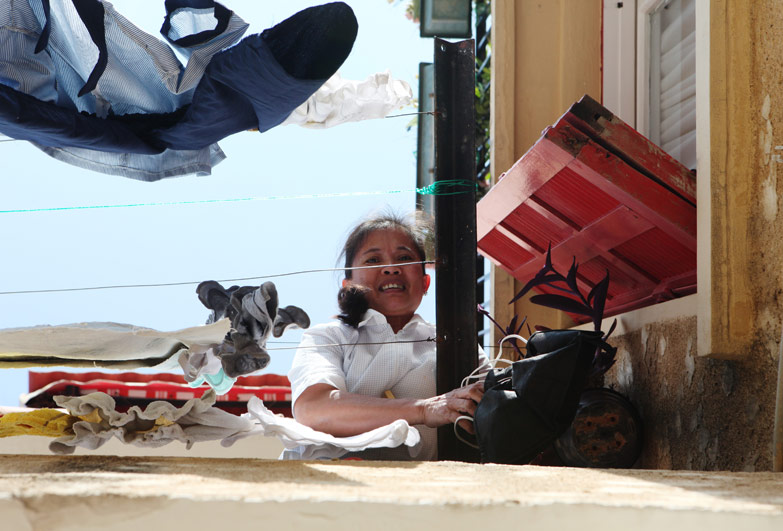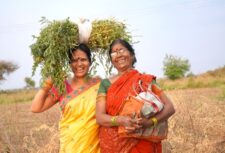Disclaimer: This article is more than 6 years old, and may not include the most up-to-date information or statistics. Please verify information with more recent sources as needed, and if you have any questions contact our Press Office.
Head of Programmes and Advocacy Debbie McGrath shares what we learnt from our project tackling exploitation of Nepali migrant domestic workers in Lebanon.

Photo: KAFA
This article first appeared in our Reporter magazine. All our members and donors receive a copy twice a year delivered straight to their doorsteps – Donate or become a member to be one of them.
04 July 2017
When Savitra Pulami Magar first arrived in Lebanon she hoped for a better life, having secured a job as a domestic worker through an employment agent in Nepal, but she had no idea of the difficulties awaiting her.
“It was very difficult to work there.” Savitra said. “The difficult part was that I was not allowed to go out. Some people escape their jobs but it will be difficult if you escape. If they catch you, you will be taken to the police and they will beat you” she said.
With an estimated 200,000 migrant domestic workers in Lebanon the abuse and exploitation of Nepali domestic workers is widespread. Workers, such as Savitra, face physical, mental and sexual violence from their employers, as well as being forced to work, often without pay, for months on end.
Anti-Slavery International’s project, supported by the Open Society Foundation and implemented together with partners GEFONT in Nepal and KAFA in Lebanon, set about tackling these abuses by providing predeparture training in Nepal, building a support network in Lebanon, and advocating in both countries to improve legal protections.
“We were able to create a support net […], providing the women with someone to turn to if needed.”
One of the biggest lessons learnt from the project has been the need to look at the problem holistically and understand how each element of the migration chain interacts, as well as the need for all partners to learn from each other and be flexible in their work.
An example of this was recruiting a Nepalese outreach worker to engage Nepali migrant workers in Lebanon, break through the isolation many women face, and address cultural dynamics in a way KAFA could not.
“Approaching Nepali domestic workers is very difficult, many feared they would lose their jobs or be beaten. Sometimes I had to wait for hours for them to come out to throw out the garbage so I could quickly talk to them”, Sita Lata, the outreach worker, said.
As a result of this collaborative approach we were able to create a support net linking trade unions, international organisations, government institutions and local civil society groups, providing the women with someone to turn to if needed.
On the other hand, the experiences of KAFA in Lebanon showed the importance of targeting not only the workers before they migrate, but also their families to challenge their assumption that ‘no news is good news’. Maintaining regular contact with their loved ones means that action can be taken much sooner if any problems occur.
Although Lebanon is still a long way from changing its sponsorship system, Nepali Government now moved closer to better regulate the recruitment processes and lift the ban on migration to Lebanon for domestic work, which made women look for alternative illegal routes.
There are many obstacles to overcome, but with a fuller picture of the situation and the vulnerabilities that workers face, we are now in a much better position to understand how to tackle the full spectrum of the problems.
- Read the full evaluation report from the project
- This article first appeared in our Reporter magazine. All our members and donors receive a copy twice a year delivered straight to their doorsteps – Donate or become a member to be one of them.





